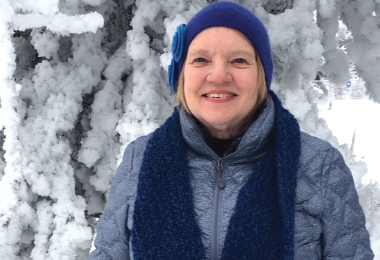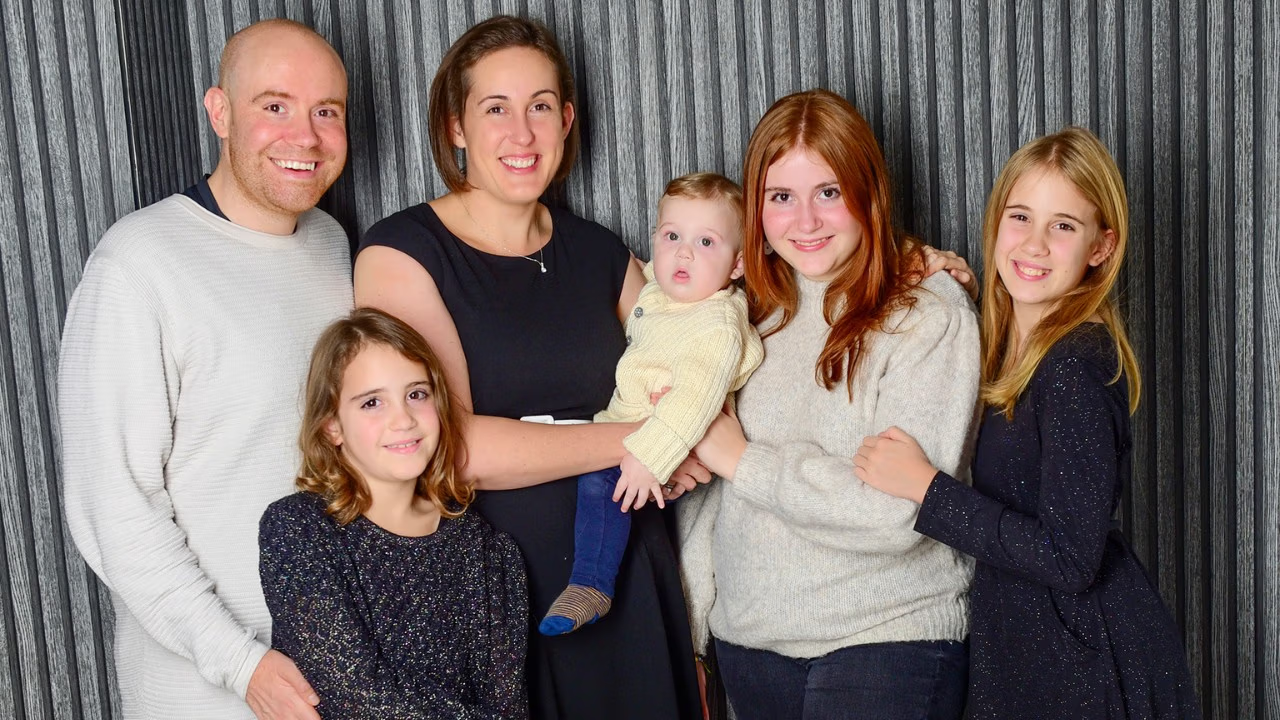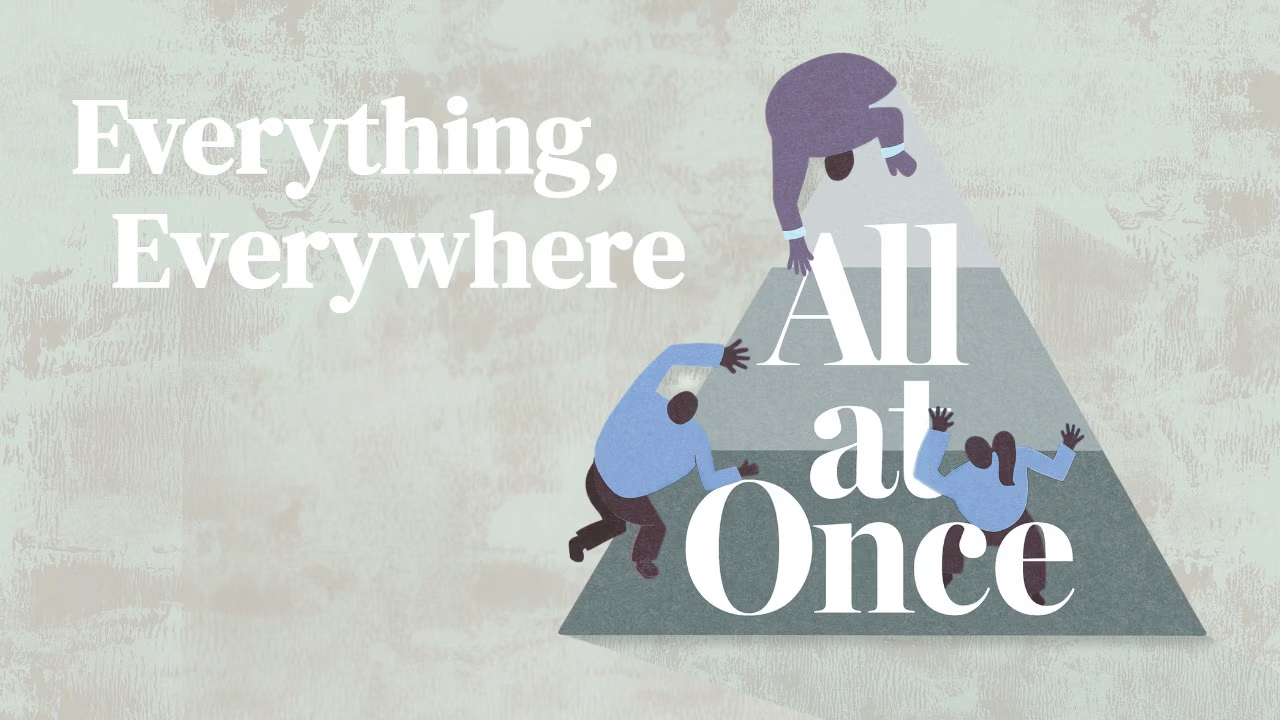[vc_row][vc_column][vc_column_text]
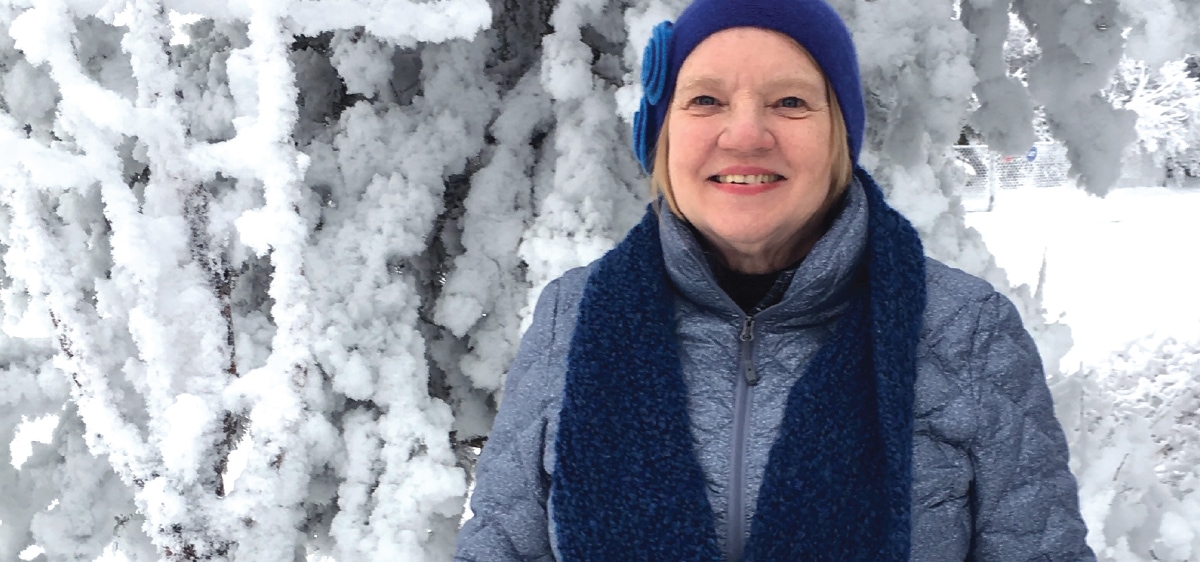
[/vc_column_text][/vc_column][/vc_row][vc_row el_class=”hero-header-text”][vc_column][vc_column_text]
Recovering My Hallelujah
in the volunteer choir
How a move to Anchorage gave me a new voice
by Helen Cepero | April 10, 2017
[/vc_column_text][/vc_column][/vc_row][vc_row][vc_column][vc_column_text]
You’re the wife of the pastor at the church on C Street, aren’t you?” Surprised by the question, I nodded and said yes. Then the man told me he’d been coming to the church for about two months. Recognizing him now, I stuck out my hand and said, “My name is Helen, what’s yours?” He answered, “I’m Victor and I work here now.”
For a moment I glimpsed the meaning that might be behind those simple words. A rotating group of men put in their time at this thrift store while they are on probation.
I guessed that Victor had joined their ranks for a time, pushing a shopping cart and putting out discarded office supplies, dishes, and mismatched pots and pans on the shelves. He smiled and said, “I feel comfortable at the church.” I said, “Yes, I do too.”
[/vc_column_text][/vc_column][/vc_row][vc_row][vc_column][vc_column_text]
Our church has an Easter tradition of inviting anyone to join our impromptu volunteer choir. The following Sunday was Easter, and both Victor and I came forward to sing—along with about a third of the congregation. An auna (grandmother) wearing a kuspuk came up with her granddaughter in a ruffled dress of pink and purple. An uppa (grandfather) wrapped his weathered hand around his grandson and led him to the front. There were also lawyers (both Native and white) and homeless (also both Native and white), fishermen and fisherwomen; wilderness guides and nurses, an ESL teacher, an engineer, and someone who, following church that day, would panhandle on a nearby corner.
All of us gathered at the front of the sanctuary. Front and center, a stool was placed for Elder Carrie to sit on. At nearly ninety years old, Carrie, whose face is familiar from the brochure of the Native Heritage Center, was born in a sod hut in the village of Mekoryuk on Nunivak Island. Her daughter Emily led her mother to her place of honor. Joining her were Alaska Natives of other language groups—Inupiat, Cup’ik, Yup’ik, and Aleut—who lived in Anchorage but called Unalakleet, Bethel, Mountain Village, or Koyuk their true home. Some born and raised Alaskans among us knew no other place as home, while some of us had moved here from the lower forty-eight. And others were simply visiting with us.
Our choir director had come to Nome from Chicago in the 1950s to be a radio announcer at station KICY and ended up working in Anchorage until his retirement. Before we began to sing, he invited us all to remember the Native pastor whose funeral we had just attended a few days earlier. Nathan Toots had always led the volunteer choir, but as the new choir director said, “Today Pastor Nathan is leading a choir of angels in glory.” We all smiled, imagining Pastor Nathan leading his own volunteer choir with Jesus.
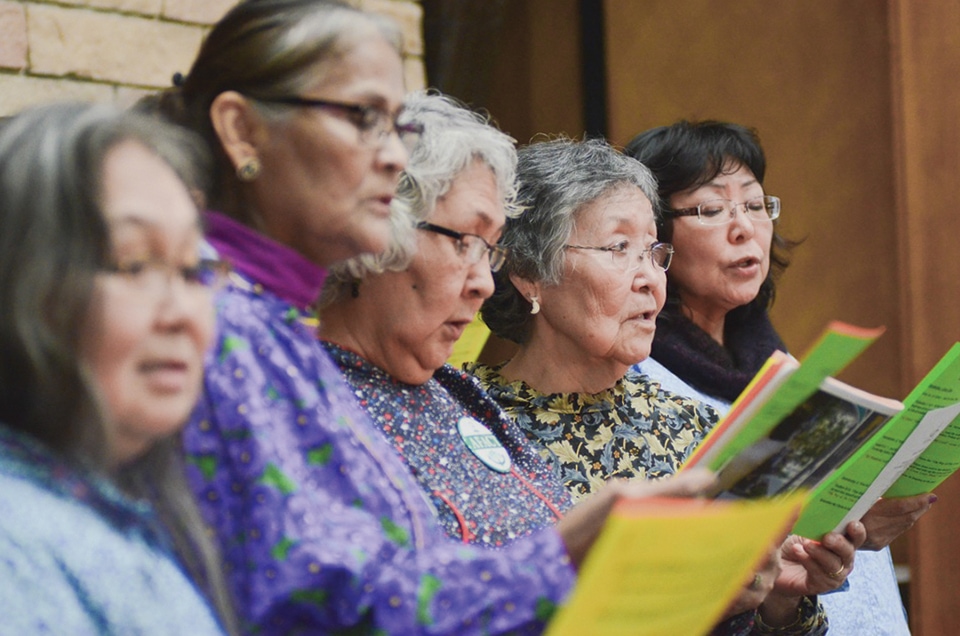
Once assembled we turned to #245 in the Covenant Hymnal to sing “Low in the Grave He Lay.” We were further instructed us to sing the first verse in a quiet voice and then sing out when we got to the chorus. But we were all too happy to be singing together to find our quiet voices. When we got to the chorus we belted it out: “Up from the grave he arose with a mighty triumph o’er his foes!” Then we continued, “He arose a victor from the dark domain and he lives forever with his saints to reign.” Now we were ready for the chorus’s finale: “He arose! He arose! Hallelujah, Christ arose!”
We were all nearly shouting at this irreverent crescendo, filled with enthusiasm and utter certainty that Jesus was reigning on this Easter Sunday with all the saints.
When I arrived in Alaska, the possibility of finding a life for myself here seemed just about as remote as the idea of Jesus springing up from the grave. Before I arrived, I felt like I was living in a world of hierarchy, clinging to the lower rungs of someone else’s standards. My unmet expectations of how I hoped to be recognized left me feeling diminished and just a little bit bitter. But moving to Anchorage meant I had to let go of even that dubious position. I left behind a job and a role that I thought gave me some significance, even if others didn’t necessarily see that.
Before I arrived, I felt like I was living in a world of hierarchy, clinging to the lower rungs of someone else’s standards.
On my first visit to Anchorage, I heard an older Native couple ask in another old gospel hymn, “Does Jesus care?” I both wanted and needed to believe the chorus they sang in their heart language of Yup’ik and then in my language of English: “Oh yes, he cares, I know he cares, / his heart is touched with my grief. / When the days are weary, the long nights dreary, / I know my Savior cares.”
Surely they were witnesses to something that I wanted so much to believe and trust, but it seemed just out of reach, beyond my understanding.
It was some months after moving to Alaska that I realized with startling clarity that Jesus did not, in fact, care the way that I did about how I viewed myself relative to others’ expectations or my own. But Jesus did care about all the times that I chose death over life and suffered personal grief as a result of that choice. Or the times I’d settle for an ersatz sort of living while the real thing, the real person, was there all along, longing to give me love and genuine hope.
When the women come to anoint their dead master and friend on that first resurrection day, the two men in dazzling white say, “Why do you look for the living among the dead? He is not here; he has risen!” Perhaps I’d spent too much of my life combing cemeteries and crematoriums for signs of life. Somehow I had thought that life would be found through my accomplishments or how others saw me or where I saw myself in relation to those around me. Yet all the while, grace and hope were already alive in me and with me through Christ. Living in Anchorage, I saw again the way that life and love can reassert itself even in the face of what feels like an inevitable ending. How had I failed to recognize what seemed so obvious to me now?
On Easter Sunday as the volunteer choir finished its raucous number, I felt a tug on my skirt and saw Trinity, a girl in the kindergarten Sunday-school class I sometimes teach. She had come forward to sing as well. But she had even more urgent news to share. “Today is my birthday!” she said. “I just turned six!” I gave her a quick high five as she grinned up at me. I joyfully grinned back at her. Resurrection and a birthday all in one day—who could believe such good news?
Cynicism might again overwhelm my Easter naiveté. But just as I shouted “Hallelujah, Christ arose!” with Victor and Trinity and the rest of our congregation, I was totally, giddily alive.
[/vc_column_text][/vc_column][/vc_row]


